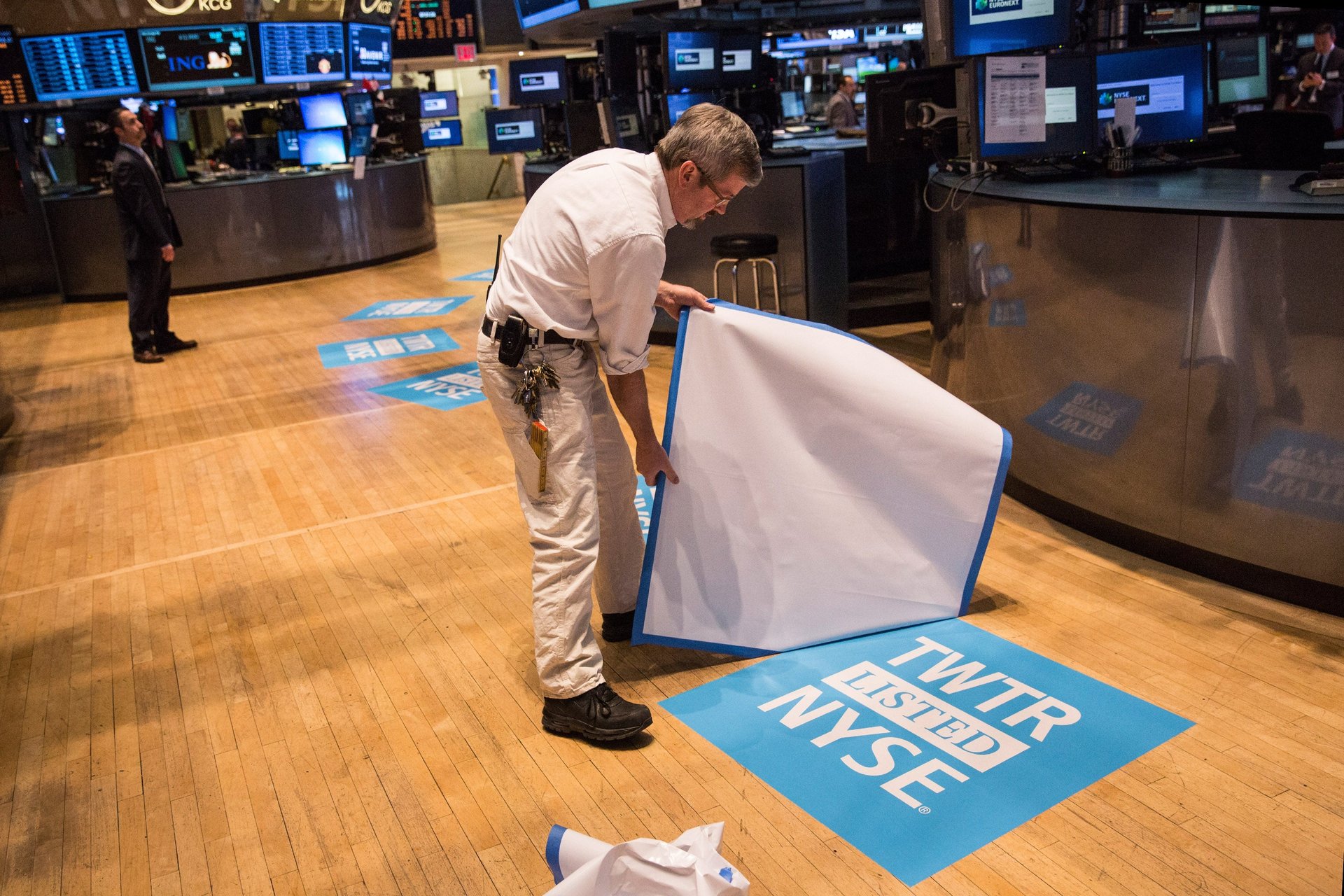So long for now, TWTR
Elon Musk officially owns Twitter. That means the end for TWTR as a publicly traded stock.

Elon Musk did it. The billionaire Tesla CEO closed on his $44 billion deal to buy Twitter on Oct. 28.
Musk has promised to take the social media company private, which means Twitter, which went public on Nov. 7, 2013, will soon exit the stock market after a nine-year run.
Trading in the stock was halted ahead of today’s session, and the New York Stock Exchange notified regulators that it intends to delist Twitter shares on Nov. 8.
What happens to Twitter as a private company?
It’s been a bumpy ride for Twitter shares from the start, and certainly this year, both in the months leading up to Musk’s takeover bid and the months that followed, in which he attempted to terminate the merger.
Musk will have rid himself of the pressure of being a public company—namely, the quarterly financial disclosures—but he’ll face new pressure from his investors.
The world’s richest man wasn’t liquid enough to buy Twitter outright, so he took $12.5 billion in debt financing from banks including Morgan Stanley. He also raised another $7 billion from equity investors, including Saudi prince Alwaleed bin Talal, the crypto firm Binance, and Oracle founder Larry Ellison.
Elon Musk will presumably find an exit for Twitter eventually
While Musk has stated that he didn’t buy Twitter to make money, his investors will surely have an expectation of profit. So Musk will likely try to make an “exit” eventually, like most private startups do in Silicon Valley: either through a sale or by taking the company public again.
So it’s goodbye for now, TWTR, but maybe not forever.
